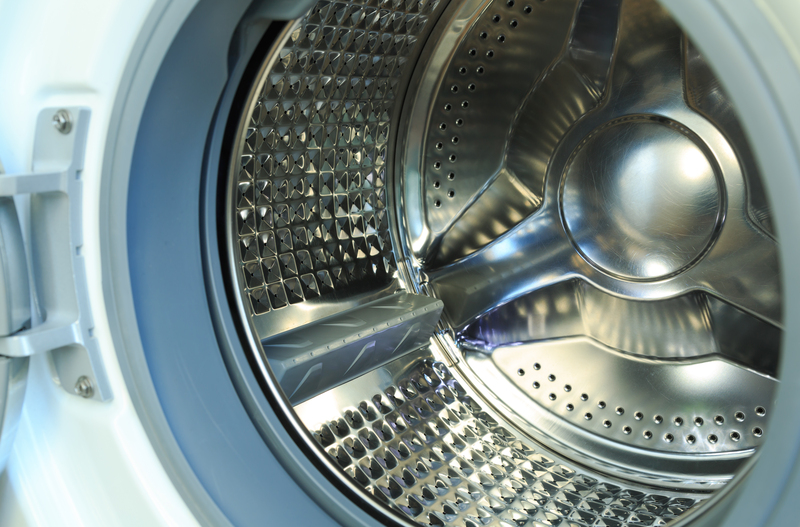Neutralize Pet Smells for a More Pleasant Home
Posted on 19/06/2025
Neutralize Pet Smells for a More Pleasant Home: Complete Guide
Welcoming pets into your home brings endless joy and companionship. However, it often comes with a less desirable side effect--persistent pet odors. Whether from dog dander, cat litter boxes, or small animal cages, these smells can linger and leave your house feeling less than fresh. Are you in search of practical and effective solutions to neutralize pet smells for a more pleasant home? This comprehensive guide will help you banish pet odors and restore the inviting atmosphere you love.

Understanding Pet Odors: Why Do They Linger?
Before you learn how to get rid of pet smells, it's important to understand where they come from. Pet odors often arise from:
- Pet dander: Dead skin cells shed by pets that make their way into carpets and upholstery.
- Urine accidents: Particularly tough to remove, urine can seep into surfaces and break down into strong-smelling ammonia compounds.
- Dirty fur: Oils and sweat accumulate on your pet's coat, especially in breeds with thicker fur.
- Litter and cages: Unmaintained litter boxes or cages quickly spread odors throughout your home.
Proven Methods for Neutralizing Pet Odors
1. Establish a Routine Cleaning Schedule
The key to maintaining a fresh-smelling house is consistent cleaning. Incorporate these habits into your weekly routine to neutralize pet smells for a more pleasant living space:
- Vacuum Frequently: Use a vacuum with a HEPA filter to trap pet dander and hair. Focus on carpets, upholstery, and pet beds.
- Wash Pet Bedding: Pet beds, blankets, and washable toys should be cleaned at least once a week in hot water.
- Groom Your Pets: Regular baths and brushing help control the buildup of oils and skin flakes.
- Clean Litter Boxes and Cages: Remove waste daily and scrub containers thoroughly with pet-safe cleaners at least once a week.
By minimizing the accumulation of smell-causing particles, you take the first major step in pet smell neutralization.
2. Deep Clean Soft Furnishings and Carpets
Pet smells often cling to fabrics. Deep cleaning is necessary for long-lasting odor removal. Here's how to neutralize pet odor in soft materials:
- Steam Clean Carpets: Hot steam reaches deep into carpet fibers, dissolving odors and removing stains.
- Wash Covers and Curtains: Remove washable fabric surfaces and launder them per manufacturer instructions.
- Use Enzymatic Cleaners: These specialty cleaners break down organic molecules in urine and saliva, completely eliminating the odor at the source.
- Sprinkle Baking Soda: After vacuuming, scatter baking soda across surfaces and leave it overnight before vacuuming again; baking soda is a natural deodorizer.
_Pro Tip: Always test cleaners on a hidden area to avoid discoloration._
3. Address Pet Urine Accidents Immediately
Prompt action is crucial when neutralizing pet urine smells. If your dog or cat has an accident:
- Blot, Don't Rub: Press paper towels on the accident to absorb as much liquid as possible, but never rub the spot as this spreads the stain and odor.
- Apply Enzymatic Cleaner: Generously saturate the area, following package guidelines. Enzymes consume the organic material creating the odor.
- Let It Dry: Allow the area to air dry thoroughly, as moisture can breed mold and new odors.
Smart Products That Neutralize Pet Smells
Top Odor-Neutralizing Solutions
Not all odor products are created equal. When searching for the most effective ways to neutralize pet odors, consider these proven options:
- Activated Charcoal: Place charcoal bags in rooms or near litter boxes to absorb and trap unwanted smells naturally.
- HEPA Air Purifiers: These devices filter pet dander and airborne odors, ensuring overall healthier air in your home.
- Enzymatic Sprays: Specially formulated for pet messes, these sprays are essential for neutralizing tough urine smells on hard floors and fabrics.
- Ozone Generators (with caution): Can destroy odor molecules but should only be used in unoccupied rooms as they can be hazardous to humans and pets during operation.
- Baking Soda and Vinegar: Time-tested and affordable, the combination can neutralize mild to moderate odors in fabrics and carpets.
When using any chemical or natural remedy, confirm that it's pet-safe and always follow the manufacturer's instructions for use to avoid unintentional damage or health risks.
Natural Remedies to Eliminate Pet Odors
Homemade Solutions for Pet Odor Neutralization
Banish pet scents without chemicals by using items you likely already have at home:
- Lemon Juice: The acid in lemon juice naturally neutralizes odors. Add a few tablespoons to laundry or use in a homemade cleaning spray for hard floors (test first for color-fastness).
- Baking Soda Paste: Make a paste with water and baking soda for stubborn spots on carpets and upholstery. Allow it to dry, then vacuum thoroughly.
- White Vinegar Spray: Mix equal parts white vinegar and water. Lightly mist fabrics and allow to air dry. Vinegar's strong smell fades, leaving behind a neutral scent.
- Sunshine: Whenever possible, place pet beds and blankets outside in direct sunlight. The sun's ultraviolet rays break down bacteria and naturally deodorize fabrics.
_Fresh air is one of nature's best remedies! Keep windows open when weather allows to routinely refresh your indoor environment._
Essential Oils: Use With Care
Some essential oils, like lavender or lemongrass, are thought to help neutralize odors and leave behind a soothing scent. However, not all essential oils are safe for every pet, especially cats and small animals. If you use oils, be sure they are appropriately diluted and used in a room your pets cannot access. Always research thoroughly or consult your veterinarian before introducing any scents to your cleaning regimen.
Preventing Future Pet Odors
Best Practices for a Long-Lasting Pleasant Home
_Consistency is key._ Try these strategies to keep your home fresh over time:
- Maintain a Grooming Routine: Schedule regular baths and brushing to keep your pet clean and reduce the buildup of odor-causing oils and dander.
- Upgrade Your Litter or Bedding: Opt for high-quality, odor-absorbing cat litter or cage bedding. Consider covered or ventilated litter boxes to trap and reduce odors.
- Place Pet Items Strategically: Locate pet beds, crates, or feeding areas in spaces with good ventilation and away from the center of busy rooms.
- Use Machine-Washable Accessories: Choose only washable covers, cushions, and toys for easy, regular cleaning.
Keep Your Home Ventilated
Regularly opening windows or using fans can help carry away lingering odors and keep your environment circulating. Pair ventilation with air purifiers for best results.
When to Seek Professional Help
For deeply embedded odors--such as long-term urine stains in carpets or persistent smells in HVAC systems--you might need professional intervention. Carpet and upholstery cleaning services have access to powerful extractors and commercial-grade enzymatic treatments. Likewise, professional duct cleaning can prevent smells from circulating inside your home's heating and cooling system.
_Intensively cleaning and maintaining your home not only controls pet smells but also extends the life of your furnishings and boosts indoor air quality._

Frequently Asked Questions (FAQs) About Removing Pet Odors
-
Q: What is the best way to neutralize dog urine smell?
A: Use an enzymatic cleaner designed for pet accidents. Blot up excess liquid first, apply the cleaner, and let it air dry. Baking soda or vinegar can also help, but enzymes are most effective for complete odor elimination. -
Q: How often should I wash my pet's bedding?
A: At least once per week, or more frequently for pets that shed or play outdoors. Use hot water and mild, fragrance-free detergent to kill bacteria and neutralize odors. -
Q: Are air purifiers effective against pet smells?
A: Yes! Air purifiers with true HEPA filters and carbon layers capture pet dander and odors from the air. For best results, select a unit matched to the size of your room. -
Q: Is it safe to use essential oils around pets?
A: Many essential oils are toxic to pets, especially cats. Only use oils that are confirmed safe, and always dilute heavily. Consult with veterinarians before using any oils near your pets. -
Q: How do I keep my cat's litter box from smelling?
A: Scoop waste daily, completely replace litter weekly, and regularly wash the box with hot, soapy water. Try adding a thin layer of baking soda underneath the litter for added odor control.
Conclusion: Enjoy a Fresh, Inviting Home With Your Pets
Pets hold a dear place in our hearts and homes, but their smells don't have to. By following a diligent cleaning routine, using proven deodorizing techniques, and embracing both commercial and natural solutions, you can neutralize pet odors for a more pleasant home. Not only will you breathe easier, but so will your family and guests. Consistent care makes all the difference; with the right approach, a pet-friendly and fresh-smelling house is well within reach!
```




